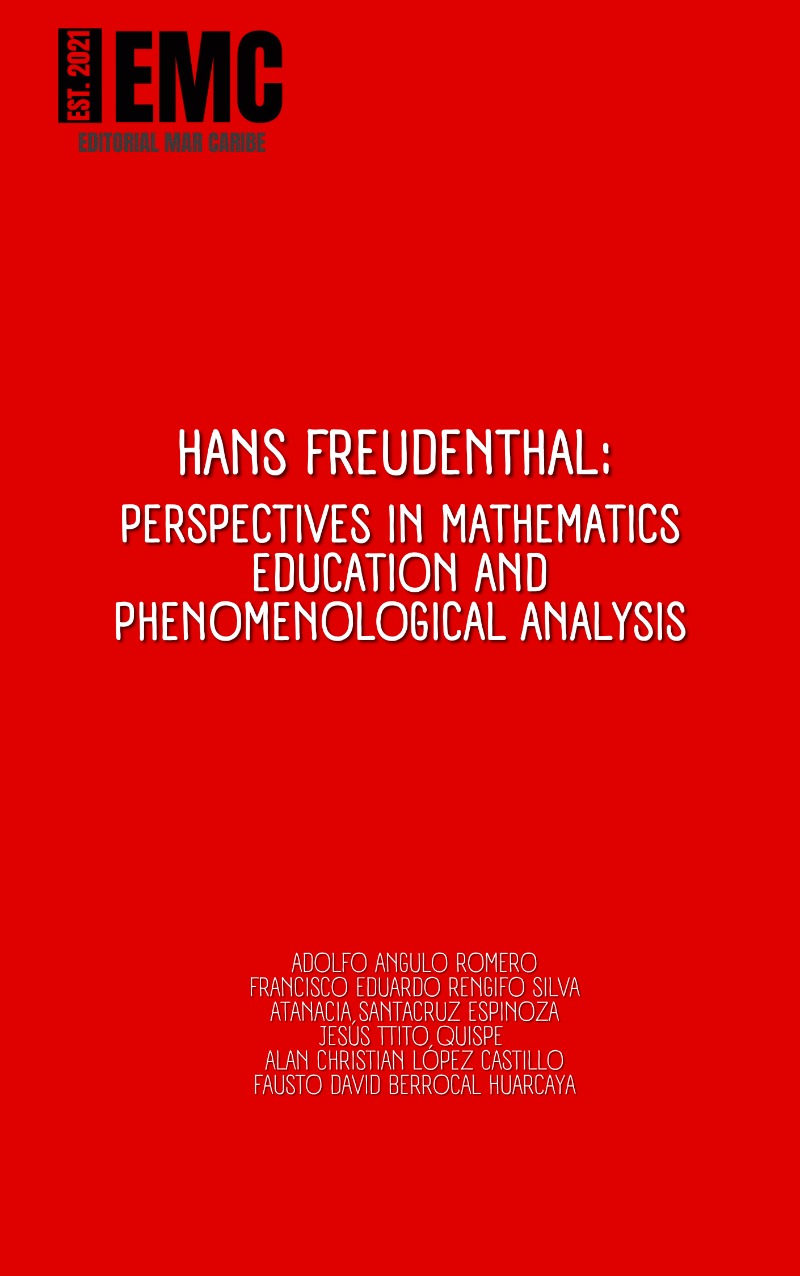
Hans Freudenthal: Perspectives in mathematics education and phenomenological analysis
Rengifo Silva, Francisco Eduardo
Santacruz Espinoza, Atanacia
Ttito Quispe, Jesús
López Castillo, Alan Christian
Berrocal Huarcaya, Fausto David
Editorial:Editorial Mar Caribe
Materia:Educación
Clasificación:Filosofía de las matemáticas
Público objetivo:Profesional / académico
Publicado:2024-09-19
Número de edición:2
Número de páginas:0
Tamaño:5Mb
Precio:$600
Soporte:Digital
Formato:Pdf (.pdf)
Idioma:Inglés
Libros relacionados
Inteligencia artificial en la educación y el trabajo - Ferrarelli, Mariana
Metodologías activas en primaria: Colaborar para aprender, Inspirar y empoderar - Imbert, Daisy; Cabrera, Claudia; Rebollo, María Cristina
Percepciones sobre la medida de restricción del uso de celulares en el Colegio Santa Elena - Castaings, Mariana; Haretche, Carmen; Hernández, Melissa; Labarthe, Javier; Oreiro, Cecilia; Viñas Forcade, Jennifer
Inteligencia artificial en la educación y el trabajo - Ferrarelli, Mariana
Reseña
For Freudenthal, the practice of mathematics in the curriculum is not a set of predetermined theories, goals and means. On the contrary, it is always associated with positively understood phenomenological processes in mathematics, as the curriculum is often used in conjunction with the transformation or development of practice. For Freudenthal (1968), educational theory was a practical endeavour from which new theoretical ideas could emerge as a kind of scientific by-product. In his view, curriculum development should not take place from the academic ivory tower, but in schools, in collaboration with teachers and students. He expressed similar ideas and, by calling for a practical curriculum, eloquently questioned curriculum theory in research and development and innovation.
There are, therefore, similarities between some of the implications of a colonial approach to curriculum and the concept itself. However, when phenomenology appears in Freudenthal’s work, it often has the opposite meaning and he qualified the main direction of the movement as theoretical and top-down, starting from a vision of curriculum as processes and proposing an alternative of its own for educational development, which was nothing more than a perspective of mathematics education, that is, its realist mathematics (Sepúlveda, 2018).
From this perspective, phenomenological, curricular and ethnographic real mathematics, or practice-based “mathematization” have similar characteristics. And this was of fundamental importance to Freudenthal, because, in his opinion, the main task of mathematics education should be the mathematization of everyday reality. Mathematics cannot be learned in mathematics courses because initially none of mathematics is empirically real for students, especially in the early years of life, i.e. in early childhood and primary education. In addition, the subject of mathematics, based on facts, helps students to adopt a mathematical approach in everyday situations (Trujillo, 2017). In this book, we can refer to the realistic mathematical activity, as expressed by Freudenthal (1991), which implies a mathematical attitude that includes the knowledge of the possibilities and limitations of learning a mathematical method, that is, the knowledge of when a mathematical method is appropriate and when it is appropriate or not.




